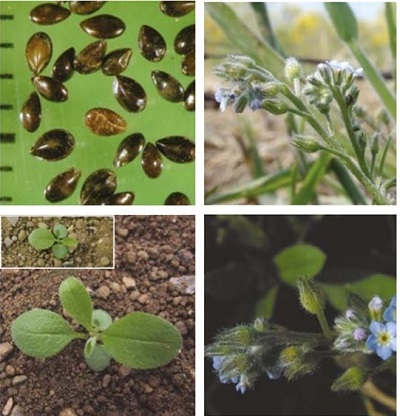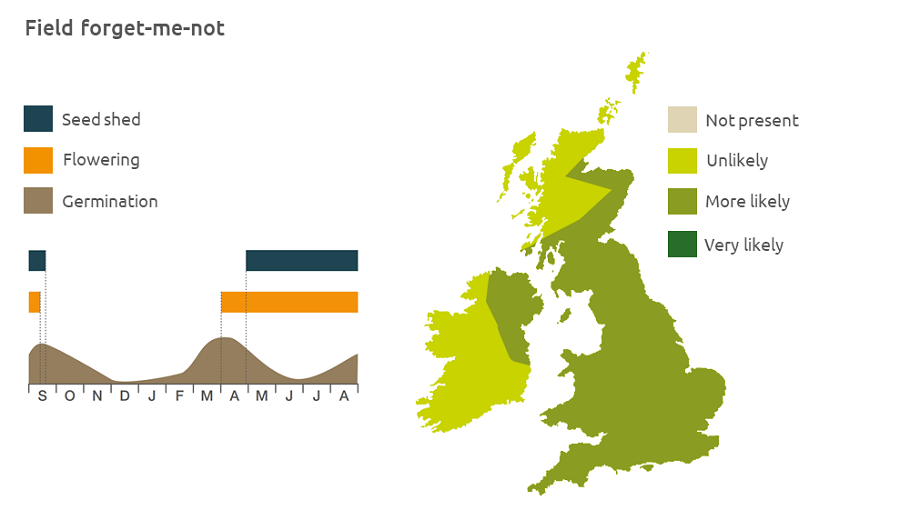- Home
- Knowledge library
- Distribution and biology of field forget-me-not in the UK
Distribution and biology of field forget-me-not in the UK
Field forget-me-not is a common weed of winter cereals and winter oilseed rape. Find out how to identify and control it.
Overview
Field forget-me-not (Myosotis arvensis) is common in winter cereals and winter oilseed rape and can also occur in spring crops. It is generally not very competitive but can occur in very high numbers competing with the young crop.
The mature plant can overwinter as a small rosette and seedlings which germinate in autumn can also survive winter. The plant reproduces by seed. Seeds can be moved by ingestion by animals. Plants may re-sprout and flower when the leaves have been removed.
- It has value to biodiversity
Description
It is a short, soft-haired annual or biennial, 10–50 cm tall with the lower leaves forming a rosette. The flower stalk curves at the end into a scroll with the buds to one side. The small flowers have five blue petals and a yellow tube.
Lookalikes
Young field forget-me-not plants may be confused with daisy, but daisy has no hairs on the cotyledons.

Location and life cycle

Geographic distribution
Forget-me-not is usually found on arable land or other habitats with bare soils. It can grow above an altitude of 600 m.
Soil type
There is no particular soil type associated with this weed.
Seed statistics
- Seed longevity: >5 years
- Germination depth: 5 cm
- Seed weight: 0.29 mg
- Seeds/flower: 4
- Seeds/plant: 0–3,000
Management
For advice on herbicides, please speak with your agronomist or adviser.
When was this information last updated?
This page is based on content from the encyclopaedia of arable weeds publication. Since it was first released in 2008, the publication has been redesigned several times but not revised. However, it remains a good foundation for general information on the distribution and biology of weeds.

